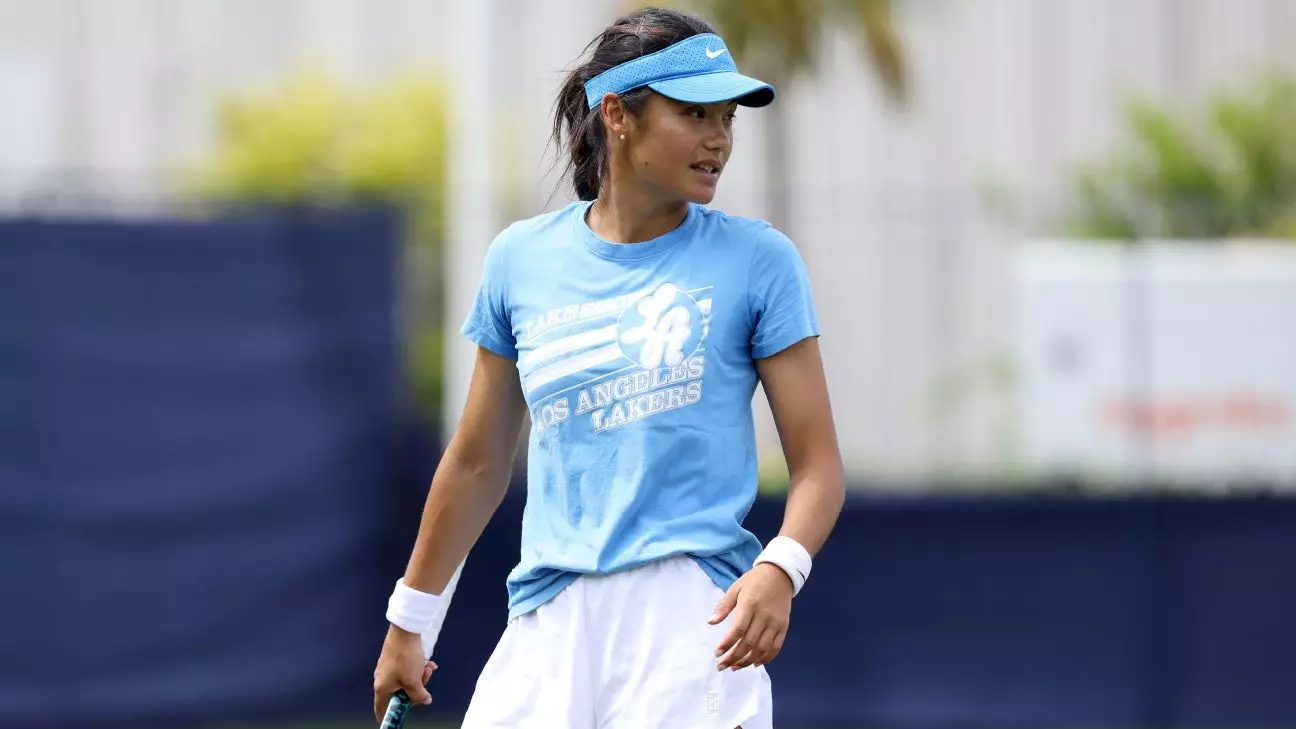Emma Raducanu’s recent experience underscores a deeply troubling reality faced by many athletes, particularly women, regarding personal safety. The 2021 US Open champion recently expressed her relief after Wimbledon took proactive measures to prevent a stalker from attending the prestigious tournament. This incident sheds light on the darker side of sports where fanaticism can cross the line into harassment and danger, a topic often overlooked until it manifests in alarming ways. Raducanu had previously encountered this individual while competing internationally and understandably struggled to find comfort amidst the very sport that should empower her.
Such behavior is unacceptable and highlights a systemic issue within the sports world that needs immediate attention. The stalking incidents Raducanu faced at WTA events in locations like Singapore and Dubai aren’t isolated; they reflect pervasive issues of female athletes’ safety. The fact that she had to endure such psychological distress during her sporting career is a somber affirmation that even elite athletes can be victims of toxic obsessiveness and disregard for personal boundaries.
The Role of Institutions
Athletes like Raducanu possess significant platforms that can amplify discussions surrounding safety and support within sports communities. Thus, the response from Wimbledon and the All England Club is commendable, showcasing the responsibility institutions have in creating safe environments for their participants. Their decisive actions in screening ticket applicants to prevent the stalker from entering not only improved Raducanu’s experience but set a precedent for enhanced security measures at high-profile sporting events.
This proactive approach demonstrates that institutions must continually evolve their policies and procedures to ensure athletes feel protected. The collaboration between the police and Wimbledon officials could become a model for other sporting events globally, stressing that readiness to confront such situations should not be optional but mandatory.
Strength in Numbers
In her remarks, Raducanu boldly acknowledged that she is not alone in these experiences, recognizing that women in sports regularly confront invasive and troubling attention. By highlighting her ordeal, she contributes to a growing conversation about the vulnerabilities female athletes face, encouraging greater solidarity among sportswomen. The acknowledgment of British No. 2 Katie Boulter’s own struggles with online abuse also adds a significant layer to this discussion. Such solidarity can start shifting cultural perceptions around the treatment of female athletes, promoting understanding and, ideally, change.
Raducanu’s perspective on feeling safer with heightened security resonates powerfully, suggesting an essential need for continued focus on protective measures. It’s not merely about ensuring safety; it fundamentally reflects a right to perform without the fear of unwanted attention. Her insights emphasize the need for a culture wherein every competitor can focus entirely on their performance, free from the shadows of fear.
The emotional toll of such experiences often remains unspoken. Yet Raducanu’s willingness to share her story promotes not just awareness, but could serve as a catalyst for change within the sports community.


Leave a Reply